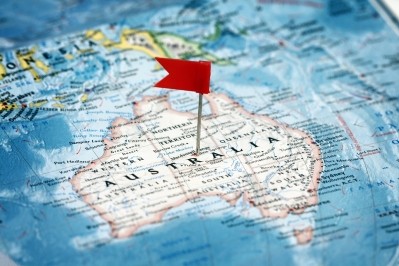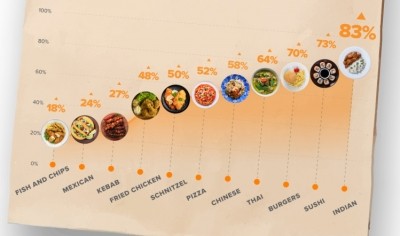Trade & Agriculture Commission: 'we are at a crossroads'

The Commission makes the call in its final report, published today (2 March), arguing that the UK is 'at a crossroads', with potential to unlock 'new opportunities for meat, dairy, cereals, fish, whisky and a host of other iconic UK products'.
National Farmers Union president Minette Batters welcomed the report's publication: “I commend the Commission for setting out a bold vision to manage those tensions, growing our exports and improving our competitiveness while continuing to meet the high expectations of UK consumers for high quality, sustainably-produced food. But the report is also clear that this will involve trade-offs and difficult decisions and that there will be winners and losers as the government pursues its new, independent trade policy.
“At its core such a strategy must contain a clear commitment to support our farmers in producing food to the highest standards of animal welfare and environmental protection, in leading the world in climate-friendly farming and in remaining the beating heart of our rural communities. I am pleased to see such an approach reflected in the Commission’s deliberations.
'Coherent trade strategy'
“There are many good recommendations in the report that the Government should adopt, in particular the need for a coherent and explicit trade strategy encompassing both free trade agreements (FTAs) and general trade policy, an approach to imports that has our high standards of production at its core, and a Food and Drink Exports Council to foster a collaborative and targeted approach to growing markets overseas."
Batters looked forward to secretary of state for international trade Liz Truss's response to the report as well as the operational details of the Statutory TAC, which would follow them up.
“The Commission has set the stage for government to develop its trade policy in a way that puts the UK at the forefront of more sustainable models of production and consumption both here and across the world. I hope the government seizes that opportunity with both hands.”
Animal welfare
Chris Sherwood, chief executive of the Royal Society for the Prevention of Cruelty to Animals, said: “We are very encouraged by the Commission's recommendations that animal welfare standards should be protected and enhanced as the UK sets trade policy and negotiates Free Trade Deals with other countries.
“We agree with the report’s assessment that the Government has a huge opportunity to demonstrate global leadership on animal welfare standards by setting trade policy that makes it unviable to import products from animals that have been reared to lower standards than our own.
The report outlines six principles the Government should aim to adhere to, five areas of action and 22 specific recommendations.
The Six Principles
1 promote the liberalisation of trade;
2 prioritise a thriving domestic agri-food sector;
3 ensure agri-food imports meet UK and international standards on food safety and biosecurity;
4 match tariff-free market access to relevant climate, environment, animal welfare and ethical standards;
5 lead necessary change to international rules on trade and relevant standards, to address environmental concerns, including climate change.
Five areas for recommendations
1 an agri-food trade strategy that respects the devolved administrations and provides a framework for future trade negotiations;
2 strong international leadership by the UK, particularly over climate change;
3 a strong approach to the negotiation of free trade agreements, requiring exacting standards;
4 more energy and resource into export promotion, market access and marketing;
5 the alignment of trade, aid and climate policies relating to agri-food.
The 22 recommendations
1 The Government should develop a bold, ambitious agri-food trade strategy that unites the devolved administrations based on a liberalising approach to trade, tempered with safeguarding of important standards.
2 There should be a minister with specific responsibility to lead on agri-food trade. "The minister would lead in pushing for an elevation of global standards on environment, animal welfare and ethical trade in international forums," the report states.
3 The Government must ensure climate change and other environmental pressures are integral to its trade policy and negotiations and promote these issues in international forums. "It should champion the creation of a global standards framework for the environment and clear metrics for measuring environmental sustainability, whilst establishing a corresponding set of rigorous national standards. WWF’s Codex Planetarius could be a model from which to build these ambitions."
4 The UK should show world leadership in embedding animal welfare into trade policy.
5 It is important to combat antimicrobial resistance (AMR) in compliance with the WHO Global Action Plan.
6 The Government should respond to increased public support for ethical trading and enable the agri-food sector to be an exemplar for other sectors on this issue.
7 The Government should seek to build global coalitions to promote and protect labour rights of workers in key supply chains. "Our research suggests the UK might focus first on supply chains for bananas, rice, cocoa, coffee and tea."
8 The Government should ambitiously aim to liberalise the UK’s import tariff regime for countries that can meet the high standards of food production expected from UK producers.
9 The Government should improve qualitative assessment of the health, welfare, biosecurity and environmental implications of trade policies.
10 The UK government should ensure consultation and engagement on free trade agreements (FTAs).
11 The Government should implement risk-based audit, assurance and certification, potentially including a Trusted Trader network to ease border checks from authorities in exporting countries on sealed loads. The UK should fully explore the use of SMART and technology such as blockchain to further reduce friction along the supply chain. Findings of future agri-food risk assessments should be published at a commodity and country level.
12 The Government should work with the industry to increase investment in knowledge and insight of overseas markets.
13 The Government should support and participate in a new Food and Drink Export Council including devolved administrations.
14 The Government should work with the Food and Drink Sector Council on the industry’s request for a specialist agri-food export body for England.
15 The Government should speed up the removal of market access barriers, through FTA negotiations and wider diplomacy. "It should work with the agri-food sector to determine whether the UK Export Certification Partnership (UKECP), which contributes to market access and maintenance negotiations, should be given a wider remit, for poultry, fresh produce and cereals."
16 The Government should rapidly grow its network of agri-food experts based in embassies in target markets.
17 The Government should review marketing and promotional activities for agri-food exports, particularly under the banner of the GREAT campaign.
18 The Government should review the public procurement plan for food, maximising the opportunity to source from the UK, source sustainably and improve the transparency of sourcing.
19 The Government and the food industry must work together to improve country of origin information in the loose food, foodservice and out-of-home supply chains.
20 The Government should engage with governments, agri-food businesses and charities in developing countries and agri-food businesses in the UK with developing country interests.
21 The Government should align its trade, aid and climate policies relating to agri-food. Teams across government should establish clear, specific programmes to ensure that they are cooperating on this and aligning budgets and priorities, particularly targeting smaller businesses and poorer producers.
22 The Government should adopt a bolder, more confident and less understated approach to like-minded countries or pluri- or multilateral discussions.
Tim Smith, the TAC's chair, said: “We all want safe, healthy, affordable, sustainable food produced in a way which is fair for all involved. The decisions the government makes today will shape the future of food and farming in the UK. It is my intention that the recommendations in our report will help to secure a future in which we all benefit from a competitive farming and food sector."
In July 2020, secretary of state for international trade Liz Truss established the Trade and Agriculture Commission as an independent body to advise the government on how to advance the interests of UK farmers, food producers and consumers in future trade agreements.
















